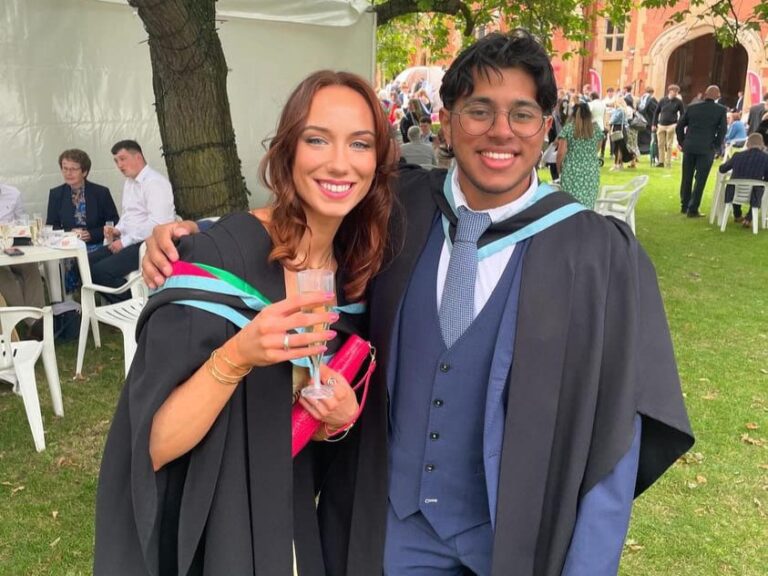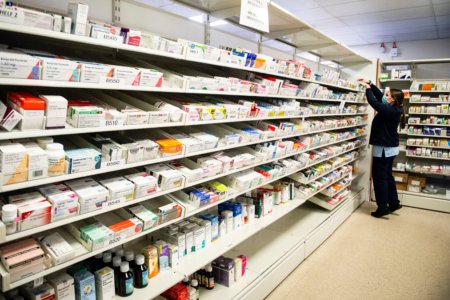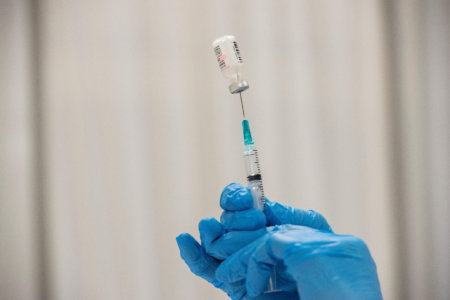
Covid-19’s remembered for a lot of things, but one of the more major ones is that the pandemic brought about the world’s fastest vaccine to be developed and deployed. It took just 11 months to develop and deploy, beating the previous record holder, the mumps vaccine, which took four years back in the 1960s.
During the pandemic, pharmaceutical and biotechnology companies discovered innovative ways to expedite the clinical trial and regulatory processes, cutting the timeline that often took years. Many companies, such as AstraZeneca, Bavarian Nordic, BioNTech, and Gritstone bio, shifted their focus to infectious disease research, enabling this rapid process.
This swift advancement is what pharmaceutical biotechnology graduates like Siddharth Gopinath have been preparing for.
“For those unfamiliar with pharmaceutical biotechnology, it’s a branch of biomedical science that creates antibodies to combat diseases,” says Gopinath. “Instead of looking at chemical-based drugs, we focus on biological drugs developed for living systems.”
Born in India and raised in a family of biology enthusiasts — his father and grandfather both hold PhDs in microbiology and biotechnology, and his grandfather serves as a professor at the Indian Institute of Science — Gopinath is no stranger to this branch of science.
“I’m a big believer in nurture vs nature,” he says. “I believe that the environment you’re brought up in eventually leads you to what you become. I saw that biology is the route to success, at least in my mind, and so I found myself in pharmaceutical biotechnology.”
Recently, Gopinath graduated from Queen’s University Belfast with a Bachelor of Science in Pharmaceutical Biotechnology and is now seeking to make his own mark in the industry.
We spoke with Gopinath about his experience as a pharmaceutical biotechnology student and the tips on how to tackle this notably difficult degree.
What does it take to be a student in pharmaceutical biotechnology?
The path to becoming a student in pharmaceutical biotechnology starts with A-levels or the International Bachelorette. You’ll need to take AP or HL in Chemistry and Biology if you’re interested in laboratory work.
You’d also most likely need a master’s if you want to work in the field, so be prepared for that extra step in your educational journey. A PhD is desirable as well.
Honestly, if you’re sure that this is something that you would like to pursue, then go for it. However, remember that your world and job opportunities will be highly specialised and limited to this field. So you’d have to be a person who’s more inclined and ready for a life in academia than to have a corporate life.
It’s not an easy degree. There are lab reports and essays to write after the fun laboratory classes. You’ll also need to have a good memory when it comes to memorising drug names, processes that happen in the body, drug-on-drug interactions, drug interactions on a body with certain indications, and more. So prepare to hunker down and revise.

Gopinath (right) and his dad at his graduation. Source: Siddharth Gopinath
What jobs are you looking to take on, and what challenges have you encountered during your job hunt?
I’m seeking jobs in data analysis roles such as clinical data analyst, formulation scientist, validation analyst, laboratory technician, and production associate. I’m also looking for jobs that include High-Performance Liquid Chromatography (HPLC).
One of the hardships is that there’s a lot of competition in the job market. It’s no longer the same world as when our parents got jobs. I had to differentiate myself from others by learning things outside of pharmaceutical biotechnology, such as working at Biocon Biologics as an Advanced Marketing Intern in Product Development.
Communication between departments is super important. The scientists behind the research and creation of the drugs and the people selling the drugs who do not have intimate knowledge of the drugs are in two separate worlds.
Scientists have a deep understanding of drugs; however, they may need help translating their information into layperson’s terms for the public. Those in sales and marketing may have limited knowledge about drugs, but when working with scientists and understanding what they want to convey, they can translate scientific terms and facts into simple words.
I want to use what I’ve learned at Biocon Biologics and apply it at a company such as Almac, Pfizer, or AstraZeneca, possibly in their sales team. With my experience, I can do both — understand scientific terms and turn them into layperson’s terms for the general public to understand. That’s what I’m trying to look for now for a job.

Gopinath believes that good memory is key to becoming a successful pharmaceutical biotechnology student. Image source: Siddharth Gopinath
Do you have any advice for those hoping to pursue a degree in pharmaceutical biotechnology?
Personally, it’s a specialised degree, so you need to be sure that’s the path you want to take. Also, always check all the boxes for tests during your A-levels or International Bachelorette exams.
Reading scientific papers will help a lot during your time as a pharmaceutical biotechnology student and don’t forget to revise the name of the drugs every day. That’s my advice for when you’re in the classroom.
Externally, try to network or chat with your professors and peers. It’s useful to have contacts for after you graduate.

Gopinath (third from the right) hopes to work with Almac, Pfizer, or AstraZeneca. Image source: Siddharth Gopinath
Do you have any advice for those wanting to study abroad in Belfast?
Research is essential, especially when you’re looking to study abroad. You should look for scholarships to apply for to reduce the cost of your education. It may be challenging to get a scholarship, especially in Belfast, but it does not mean it’s not impossible.
Get as much information as possible about universities before applying for a programme. Make sure you look through the course structure, especially if you’re looking to apply to universities in Belfast or the UK. Universities there often have a detailed programme plan, stating what you’ll be learning and the hours needed for each class.
Most importantly, you should talk to people. Don’t be afraid to reach out, especially to those working or studying at the universities you’re interested in. Ask them about life at the university, how the professors are, and additional information about the area the university is located in.
Additionally, travel as much as you want while studying abroad. Utilise the visa you have received. Many people don’t know that a BRP (biometric residence permit) allows you to travel and come back without any hassle.
The BRP enables people with weaker passports to travel to countries they usually wouldn’t be able to go to. For example, if you’re an Indian citizen, you’ll need a visa to visit Singapore. But if you have a BRP, you can enter the country without a visa.
Keep a detailed account of all your research by noting it in a notebook; you never know when it will come in handy.










